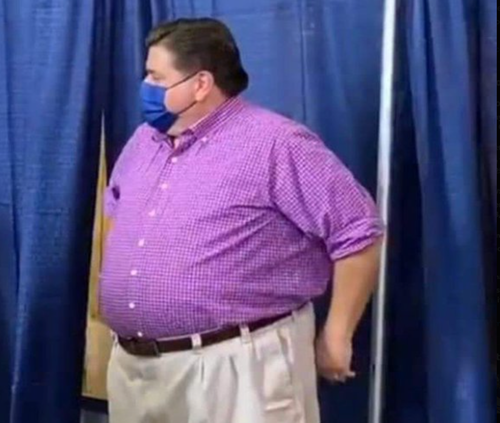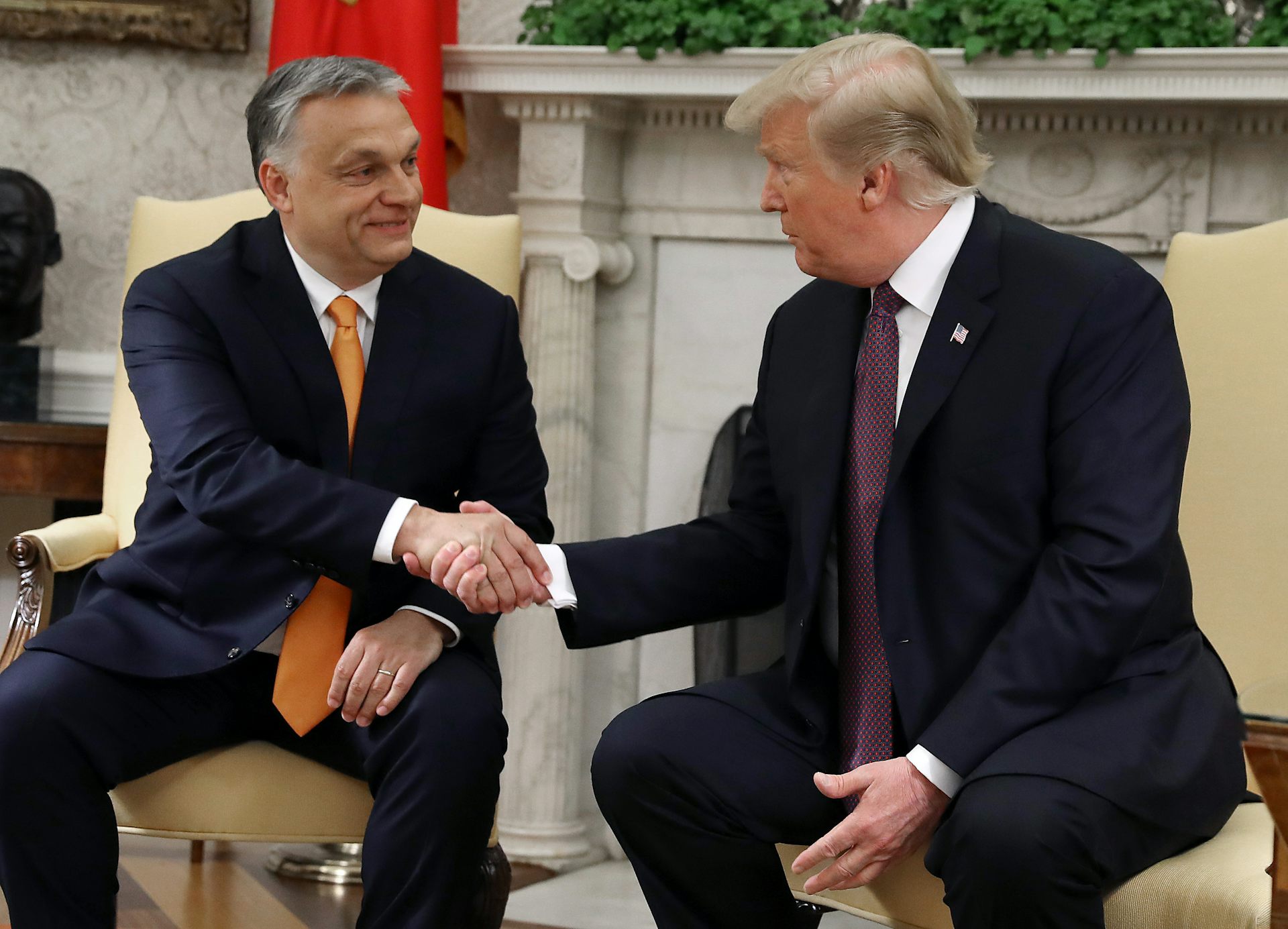Supreme Court Appears To Reject Conservative Argument Over Obamacare Provision

A majority of the Supreme Court appeared inclined Monday to reject a conservative challenge to Obamacare, leaving in place the federal government’s authority to require insurers to cover everything from depression screenings to HIV prevention drugs at no cost to patients.
And, in an odd twist, it was the Trump administration defending the health law that the president has spent more than a decade excoriating.
Over an hour and a half of in-the-weeds arguments, the justices seemed to favor the administration's position — that Obamacare’s coverage mandates are constitutional because the task force that recommends them is made up of members who can be ignored or fired at will by the health secretary.
But a favorable ruling will not necessarily be an unqualified win for Obamacare advocates, since it would still leave the current administration with significant sway over those requirements going forward. The high court’s decision, expected by June, could also jeopardize or even erase many of the preventive care requirements set since Obamacare’s inception — allowing insurance companies to charge co-pays for tens of millions of people.
The Trump administration’s surprising defense of the Affordable Care Act, which President Donald Trump has long fought to repeal, seemed driven at least in part by a desire to maximize the authority of Trump’s Cabinet and avoid having a range of employees and advisers be subject to Senate confirmation.
Deputy Solicitor General Hashim Mooppan said at least twice during Monday’s arguments that requiring the Senate’s involvement in such appointments would be unconstitutional.
Justice Elena Kagan noted that the high court has seemed insistent in recent years on bringing agencies under greater presidential control, rather than deeming them so independent as to potentially undermine their constitutionality, as the challengers to the Obamacare provision urged.
“We don't go around just creating independent agencies, more often we destroy independent agencies,” she said. “The idea that we would take a statute which doesn't set up an independent agency and declare it one, strikes me as pretty inconsistent with everything that we've done in this area.”
Lurking in the background during the arguments Monday were a series of other fights the Supreme Court has been asked to weigh in on during Trump’s second term about his power to remove officials of agencies that Congress has tried to insulate from presidential control to some extent, like the Federal Trade Commission and the National Labor Relations Board. The court has been asked to rule on some of those disputes on an emergency basis but has yet to formally add such a fight to its main docket.
Notably, Jonathan Mitchell, who won a unanimous Supreme Court ruling last year that effectively ensured Trump remained on the 2024 ballot nationwide, represented the conservative Texas employers challenging the coverage requirements.
Mitchell argued Monday that language in the Affordable Care Act guaranteeing the preventive care panel members' independence from political pressure “to the extent practicable” meant they were so powerful they needed Senate confirmation.
But Mooppan argued that Health Secretary Robert F. Kennedy Jr. has “abundant means” of controlling the members’ recommendations by dismissing the panelists and even by delaying their recommendations until new members could be installed.
Some justices expressed doubts that the task force members could be truly “independent” if they can be replaced if they step out of line.
“It’s an odd definition of independence, I suppose,” Justice Brett Kavanaugh said.
Justice Samuel Alito concurred, calling the government’s interpretation “incredibly strained,” and he dryly asked Mooppan if he considered himself independent of his boss, Trump, prompting laughter in the courtroom.
“If somebody's removable at will, that person is not, in any ordinary sense of the term, independent,” Alito said.
But Kavanaugh and several other justices took a more flexible view of the word “independent,” with Justice Sonia Sotomayor comparing the task force’s relationship with Kennedy to her law clerks.
“My law clerks — I ask them to give me their independent judgment of what an answer should be. And they'll tell you there's some times — a lot of times — I don't accept it, and I certainly have the power to fire them, and they still do it,” Sotomayor said.
Mitchell argued, however, that the Trump administration’s claim that Kennedy has the power to effectively veto coverage requirements would leave the Obamacare law “unrecognizable” by those who enacted it.
Mitchell also argued that two pieces of the 2010 landmark health insurance law are incompatible. One says the volunteer experts on the U.S. Preventive Services Task Force that advises HHS on what insurers must cover for free have to be “independent” as they make those calls. The other appears to say that the health secretary can appoint or fire whoever he likes to that task force and can effectively put any recommendation on ice.
Mooppan tried to square those provisions Monday by stressing that Kennedy has the power to order HHS’ preventive care task force to study a particular service or medication, remove any of its volunteer members who don’t comply, ignore or delay review of their recommendations, or make sure they never see the light of day. Under questioning from the justices, he compared the task force and Kennedy to the two chambers of Congress.
“The Senate can't force the House to pass a bill, but if the Senate doesn't also agree with the bill, it doesn't become a law,” Mooppan said. “We agree that the secretary cannot tell the task force to make a given recommendation. If the task force doesn't want to make a recommendation, it doesn't have to make a recommendation. Our point is simply that if the task force does make a recommendation, the secretary can block it.”
Trump surprised many in February when his administration adoptedthe Biden administration’s defense of the law. But while President Joe Biden’s Justice Department argued that eliminating the coverage requirements would harm the public’s health, Trump’s attorneys focused exclusively Monday on Kennedy’s supervisory power.
That argument has made progressive health advocates who filed amicus briefs in the case nervous — particularly given Kennedy’s views about vaccines and other preventive health care that contradict the medical community’s consensus, as well as his reported desire to overhaul other HHS advisory committees.
Still, public health advocates prefer the U.S. Preventive Services Task Force survive under Kennedy’s rule than be neutered or eliminated by the court.
“We are going to see an increase in preventable illness and death if we don't continue access to this no-cost preventive care,” said Kathy Hempstead, a senior policy officer with the Robert Wood Johnson Foundation. “Pre-ACA, about 10 percent of men and women, and about 30 percent of low-income men and women reported that they postponed or skipped preventive care because of cost. … So this seems like a narrow little point of law, but there are enormous consequences.”


